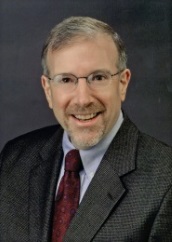
Robert A. Wynbrandt, Executive Director & General Counsel
Priscilla S. Kennedy, TSF Executive Director
STS News, Fall 2017 -- On a late December day in 1988, I received a call from my client, The Society of Thoracic Surgeons. A prospective benefactor wished to make a charitable donation of stock to the Society, but the Society’s federal tax exemption was such that its donors were not legally entitled to treat donations made to STS as charitable contributions. My challenge was to set up a corporation by year-end that would be affiliated with the Society and could receive such charitable donations—and so the STS Education and Research Foundation, now known as The Thoracic Surgery Foundation, was born. In this guest column, TSF Executive Director Priscilla Kennedy describes some of the terrific work of the Foundation, with special emphasis on some of the charitable missions that it supports. Priscilla joined the STS staff as the Foundation’s Executive Director in 2012 and has played a starring role in its subsequent successes. Prior to her recruitment into the wonderful world of thoracic surgery, Priscilla served in various capacities at the Northwestern Memorial Foundation across the street, eventually as Administrator of the Lynn Sage Cancer Research Foundation.
Over the past 29 years, the TSF mission has remained the same: fostering the development of surgeon-scientists in cardiothoracic surgery and increasing knowledge and innovation for the benefit of patients; however, the scope of the Foundation’s work has expanded tremendously. Awards programs that originally focused on cardiothoracic surgeons in North America now touch cardiothoracic surgeons and their patients around the world.
To date, TSF has funded more than 180 research and education grants, 283 Alley-Sheridan Scholarships, and 25 travel awards. This year alone, the Foundation has provided $700,000 in awards, including six TSF/Edwards Lifesciences Foundation Every Heartbeat Matters Awards for surgical outreach missions to underserved areas. These missions, to countries including Peru, Rwanda, Nepal, Nigeria, Uganda, and Cambodia, require meticulous organization and close collaboration with local governments and not-for-profit entities.
In addition to helping patients in need of health care, an important component of each mission is to utilize a “See One, Do One, Teach One” approach. This helps educate local health care providers on techniques and treatments, as well as teach them how to share that knowledge with their colleagues. In most cases, both the “teachers” and the “students” say that their experiences were life-altering and set the stage for sustainable cardiothoracic surgery programs in areas where patients often die from treatable conditions. Two examples are outlined below.
- Dr. Reza Khodaverdian, from Stanford University in California, leads efforts with the VOOM Foundation to care for adult and pediatric patients in Nigeria. Patients suffering from heart ailments in that West African nation historically have either traveled out of the country for surgery or suffered grave outcomes. In April, Dr. Khodaverdian’s team treated its 156th patient and noted progress in building a sustainable cardiothoracic surgery program. “The support we have received through TSF will truly impact the cardiac education program at the University of Nigeria Teaching Hospital. We have seen huge improvements in the Nigerian medical staff’s ability to understand, perform cardiac surgery, and provide standardized perioperative care,” Dr. Khodaverdian wrote in his post-mission summary.
- Dr. Morton Bolman, from the University of Vermont Medical Center in Burlington, leads efforts with the Team Heart organization to provide cardiac surgery services in Rwanda, where fewer than 750 physicians and 6,000 nurses provide care to more than 12 million people. In addition to developing a program that involves identifying and triaging patients with heart disease (primarily rheumatic heart disease), Dr. Bolman and his team plan to build a much-needed treatment facility and expand the number of available health care providers. “This will require the education of the next generation of nurses and physicians, as well as working with the medical school at the University of Rwanda to increase the human resources for health care delivery. It will also involve improving the available facilities for the delivery of cardiac care throughout the country in order to improve access to care,” he said.
Their experiences were life-altering and will set the stage for sustainable cardiothoracic surgery programs in areas where patients often die from treatable conditions.
New Awards, 2018 Portfolio
New this year, TSF offered 25 travel scholarships for surgeons who care for underserved patients and wanted to attend the STS/EACTS Latin America Cardiovascular Surgery Conference in Cartagena, Colombia (see page 10). The scholarship recipients practice at hospitals and clinics in Argentina, Brazil, Chile, Colombia, Ecuador, Mexico, Paraguay, Peru, the United States, and Venezuela. They had an opportunity to learn from global experts and ask questions in a forum that is not usually available to them.
The 2018 TSF Awards portfolio includes 16 grant offerings for cardiothoracic surgeons specializing in every discipline and at every career level. Applications and deadline dates can be found at thoracicsurgeryfoundation.org/awards.
Surgeon Match Challenge
In May, the STS Board of Directors approved the launch of a Surgeon Match Challenge campaign, whereby the Society agreed to match all subsequent surgeon donations made to the Foundation in 2017, up to $200,000. As of this writing, matching funds were still available; consequently, readers of STS News are urged to make their contributions today at thoracicsurgeryfoundation.org/donate. The Surgeon Match Challenge ends on December 31, 2017.
Since the Society covers all of the Foundation’s administrative expenses, 100% of those contributions will be devoted solely to TSF awards. You also can give to the specialty by providing your time and expertise to the Foundation. Please feel free to contact Priscilla Kennedy for more information.
Next year marks the 30th Anniversary of TSF. Remarkable progress has been made in the specialty over the last three decades. Through continued support from STS and its members, the Foundation’s work will have a lasting impact on cardiothoracic surgeons and their patients.